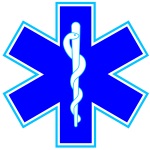Acute Abdominal Pain: Difference between revisions
From Protocopedia
No edit summary |
No edit summary |
||
| Line 7: | Line 7: | ||
* If hypotension / shock is present, refer to [[Shock|SHOCK PRACTICE PARAMETER]] (5.13). | * If hypotension / shock is present, refer to [[Shock|SHOCK PRACTICE PARAMETER]] (5.13). | ||
* For patients with severe vomiting, obtain detailed history, and then administer an appropriate antiemetic. | * For patients with severe vomiting, obtain detailed history, and then administer an appropriate antiemetic. | ||
** [[ | ** [[Zofran|ZOFRAN (ONDANSETRON HYDROCHLORIDE)]]: | ||
*** Adult: 4mg slow IVP or 1 ODT tab. | *** Adult: 4mg slow IVP or 1 ODT tab. | ||
****When administering IV, consider diluting in 10-20cc to aid in administering slowly or 4mg/2ml deep IM in a large muscle. | ****When administering IV, consider diluting in 10-20cc to aid in administering slowly or 4mg/2ml deep IM in a large muscle. | ||
*** Pediatric: Refer to Handtevy System | *** Pediatric: Refer to Handtevy System | ||
***'''NOTE''': Use PO administration route for conscious patients '''ONLY'''. | ***'''NOTE''': Use PO administration route for conscious patients '''ONLY'''. | ||
** [[ | ** [[Promethazine|PHENERGAN (PROMETHAZINE)]]: | ||
*** Adult (>13 y/o): 12.5 MG DILUTED and slow IVP or IM. | *** Adult (>13 y/o): 12.5 MG DILUTED and slow IVP or IM. | ||
*** Pediatric: 0.25 - 1 mg/kg DILUTED and slow IVP or IM. | *** Pediatric: 0.25 - 1 mg/kg DILUTED and slow IVP or IM. | ||
{| class="wikitable" | {| class="wikitable" | ||
|- | |- | ||
! The administration of [[ | ! The administration of [[Promethazine|PHENERGAN (PROMETHAZINE)]] in pediatric patients should only be considered if there is persistant vomiting and [[Zofran|ZOFRAN (ONDANSETRON HYDROCHLORIDE)]] is not effective. | ||
|} | |} | ||
{| class="wikitable" | {| class="wikitable" | ||
|- | |- | ||
! '''BLACK BOX WARNING''' | ! '''BLACK BOX WARNING''' | ||
The IV (perenteral) administration of [[ | The IV (perenteral) administration of [[Promethazine|PHENERGAN (PROMETHAZINE)]] has a '''RELATIVE CONTRAINDICATION''' in children under 2 years of age. The provider must weigh the risk vs. benefit of [[Promethazine|PHENERGAN (PROMETHAZINE)]] administration based on the patient's condition. | ||
|} | |} | ||
* If suspected Kidney Stones, refer to [[Suspected Kidney Stone|SUSPECTED KIDNEY STONE]] parameter (5.18) | * If suspected Kidney Stones, refer to [[Suspected Kidney Stone|SUSPECTED KIDNEY STONE]] parameter (5.18) | ||
Latest revision as of 00:41, 24 April 2020
Section 5 - MEDICAL
5.01 ACUTE ABDOMINAL PAIN
CONSIDER CARDIAC ETIOLOGY.
INITIAL MEDICAL CARE (2.01) - Provide OXYGEN or assist ventilations as appropriate for patient condition. Use vomiting precautions.
- If hypotension / shock is present, refer to SHOCK PRACTICE PARAMETER (5.13).
- For patients with severe vomiting, obtain detailed history, and then administer an appropriate antiemetic.
- ZOFRAN (ONDANSETRON HYDROCHLORIDE):
- Adult: 4mg slow IVP or 1 ODT tab.
- When administering IV, consider diluting in 10-20cc to aid in administering slowly or 4mg/2ml deep IM in a large muscle.
- Pediatric: Refer to Handtevy System
- NOTE: Use PO administration route for conscious patients ONLY.
- Adult: 4mg slow IVP or 1 ODT tab.
- PHENERGAN (PROMETHAZINE):
- Adult (>13 y/o): 12.5 MG DILUTED and slow IVP or IM.
- Pediatric: 0.25 - 1 mg/kg DILUTED and slow IVP or IM.
- ZOFRAN (ONDANSETRON HYDROCHLORIDE):
| The administration of PHENERGAN (PROMETHAZINE) in pediatric patients should only be considered if there is persistant vomiting and ZOFRAN (ONDANSETRON HYDROCHLORIDE) is not effective. |
|---|
| BLACK BOX WARNING
The IV (perenteral) administration of PHENERGAN (PROMETHAZINE) has a RELATIVE CONTRAINDICATION in children under 2 years of age. The provider must weigh the risk vs. benefit of PHENERGAN (PROMETHAZINE) administration based on the patient's condition. |
|---|
- If suspected Kidney Stones, refer to SUSPECTED KIDNEY STONE parameter (5.18)
- Refer to ANALGESIA/SEDATION PRACTICE PARAMETERS (2.04)
- Administer nothing by mouth.
